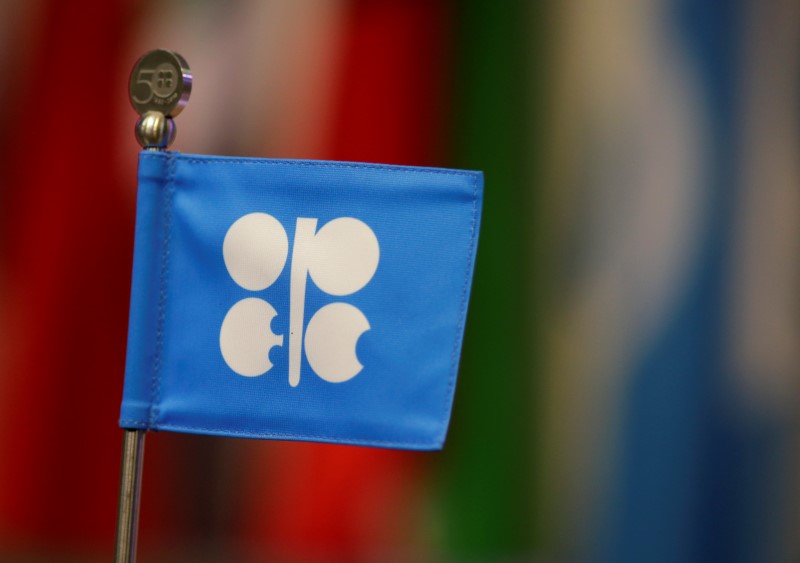Bitcoin set for a rebound that could stretch toward $100000, BTIG says
Investing.com -- Oil prices rose Tuesday as a weaker dollar and optimism that major oil producers could extend ongoing production cuts at the OPEC+ meeting later this week boosted sentiment.
By 14:30 ET (19.30 GMT), the U.S. crude futures settled 2.1% higher at $76.41 a barrel and the Brent contract climbed 2.1% to $81.52 a barrel.
OPEC+ to agree to output cuts?
The Organization of the Petroleum Exporting Countries and allies, including Russia, a group known as OPEC+, is due to meet remotely on Thursday to discuss output levels going into 2024.
The meeting was originally scheduled for Sunday but was postponed owing to a disagreement over 2024 production targets. Reports suggest, however, that the the five-week slump in oil prices, the longest since 2021, has push OPEC+ members toward a compromise, with the group’s top two producers, Saudi Arabia and Russia, expected to agree to output curbs into next year.
“The extension of additional voluntary cuts from Saudi Arabia should erase most of the surplus expected in 1Q24,” said analysts at ING, in a note. “However, if OPEC+ want to provide more solid support to the market and ensure that we do not see stocks building early next year, they will need to agree on deeper and broader cuts.”
Dollar slips as Treasury yields sink on dovish Fed speak
As well as optimism on further supply cuts, a fall in dollar also supported a rise in oil prices after dovish remarks from Federal Reserve Board Governor Christopher Waller stoked rate-cut hopes.
Waller said he was "increasingly confident" that policy is currently well positioned to slow the economy and get inflation back to 2% target. The Fed governor added that should disinflation continue for several months, the Fed "could then start lowering the policy rate just because inflation's lower."
As oil is priced in dollars, a weaker greenback makes the commodity more attractive to foreign buyers.
U.S. stockpiles seen falling
There has been a sharp decline in oil prices over the last month, due to concerns that the market was oversupplied, largely based on strong production by non-OPEC countries such as the United States.
The market received some support Tuesday with the news that Kazakhstan's largest oilfields have cut their combined daily oil output by 56%.
However, more attention is likely to be paid to the latest round of weekly U.S. supply reports, starting later in the session with numbers from the American Petroleum Institute.
The industry body is expected to report a small drop in crude inventories, but this follows a substantially bigger-than-expected increase last week, which was the fourth straight week of builds.
Chinese PMIs to offer insight into global growth
Upcoming pmi from China, which are expected to provide more cues on business activity in the world’s largest oil importer, is expected to garner investor attention at a time when global growth concerns has weighed on the oil demand outlook.
"Slower global growth prospects have been at the heart of the decline [in oil prices], a trend some analysts are betting could shift quickly amid further production cuts," Stifel said in a note Tuesday.
(Peter Nurse and Ambar Warrick contributed to this report.)
